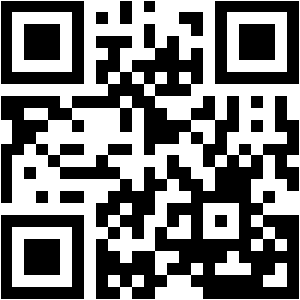Management of Chronic Disease Assignment, NUS, Singapore: An Evidence-Based Nursing Intervention Decreases Anxiety, Depression, Sleep Quality
| University | National University of Singapore (NUS) |
An Evidence-Based Nursing Intervention Decreases Anxiety, Depression, Sleep Quality and Somatic Symptoms of Patients with Acute Ischemic Stroke
Introduction
Stroke is the second-most cause of mortality worldwide, and there are about 2.5 million new stroke cases occurring in China each year.1,2 The leading subtype of stroke is acute ischemic stroke (AIS), which is triggered by cerebral ischemia, leading to the dysfunction of brain vascular components.3 It has been reported that a large number of AIS patients faced serious post-stroke complications such as depression and anxiety after stroke.2 Given its great incidence following stroke, stroke-induced PTSD may be a substantial new risk factor for recurrent stroke, which is also rather prevalent.4 These post-stroke complications can adversely affect stroke clinical outcomes, increase the risk of functional dependence, and reduce the quality of life (QOL). 5 Depressive feelings and a lack of self-efficacy in the rehabilitation process are linked to
a poor level of physiotherapy effectiveness6 Therefore, effective management to reduce post-stroke complications in AIS patients is essential.
Hire a Professional Essay & Assignment Writer for completing your Academic Assessments
Biopsychosocial factors, such as a patient’s age, gender, and time since the onset of stroke, as well as socioeconomic status and the effectiveness of formal and informal care, appear to be the most important areas of study in post-stroke rehabilitation. This is because the factors that affect a patient’s recovery after a stroke can differ greatly from person to person. As a result, bio-psychosocial assessment of patients and evidence-based nursing interventions is essential to their recovery.
In recent years, pieces of evidence from previous studies have indicated that specialized nursing care contributed to the improvement of post-stroke depression and anxiety. 2,5 For example, Verberne et al found that nurse-led stroke aftercare, which included procedures such as psychoeducation, cognitive and emotional screening, and specialist care, showed beneficial for emotional well-being in comparison to care-as-usual.5 Zhang et al2 demonstrated that a newly designed intensive caregiver education program conducted by nurses could effectively reduce anxiety and depression in patients with AIS.
Evidence-based nursing (EBN) intervention is a nursing strategy that uses credible scientific research results as evidence in combination with patient needs to implement patient care, providing patients with personalized nursing
services.6,7 EBN has been widely applied in clinical practice and makes great progress in the management of diseases such as chest pain,8 postpartum depression 6, and acute coronary syndrome. 9 For stroke, previous studies have shown that using EBN theories could reduce the morbidity and mortality associated with stroke.10,11 Based on previous research results on post-stroke depression and anxiety, we hypothesized that EBN might have
benefits in improving the psychiatric outcomes of patients with AIS. Thus, we established an EBN team composed of the head nurse and the nurses in charge of the Department of Neurology in our hospital. We aimed to explore the effects of EBN intervention on anxiety, depression, sleep quality, and somatic symptoms of patients with AIS.
(a) How to effectively improve the patient’s depression, anxiety, sleep quality, and somatic symptoms after stroke;
(b) How to implement effective psychological suggestions for patients with stroke
(c) How to improve the patient’s post-stroke nursing effect.
Buy Custom Answer of This Assessment & Raise Your Grades
Are you a student at the National University of Singapore (NUS) struggling with your Management of Chronic Disease Assignment? Look no further! At Best Assignment Help Singapore, we offer top-notch Essay Writing Services tailored to Singaporean students. Our expert team can assist you with your TMA, Individual Assignments, and more. Say goodbye to anxiety, depression, and sleepless nights - let us provide you with an evidence-based nursing intervention to excel in your studies. Pay our experts for the help you need and take control of your course today.
- BUSM2578 Integrated Perspective on Business Problems Assignment 1 2026 | RMIT
- GSS502 Global Security, Strategy and Leadership Tutor-Marked Assignment – 01, 2026 | SUSS
- MGT567 Strategic Human Capital and Talent Management End-of-Course Assessment 2026 | SUSS
- PSB7006CL Entrepreneurship Business Plan Assessment Coursework 1 2026 | PSB
- FMT321 Fire Safety & Engineering Tutor-Marked Assignment – 02, 2026 | SUSS
- B3029C Career Counselling Project Coursework Assessment 2026 | RP
- MTD115 Fundamentals of Digital Photography Tutor-Marked Assignment Jan 2026 | SUSS
- HS6433 Health Promotion and Counselling Assignment 2026 | NYP Singapore
- BCEC002 Business Economics Individual Assignment Brief 2026 | TP Singapore
- PSBA300CA / PSBA300CW Academic Writing 3 Assignment 2026 | PSB Academy


